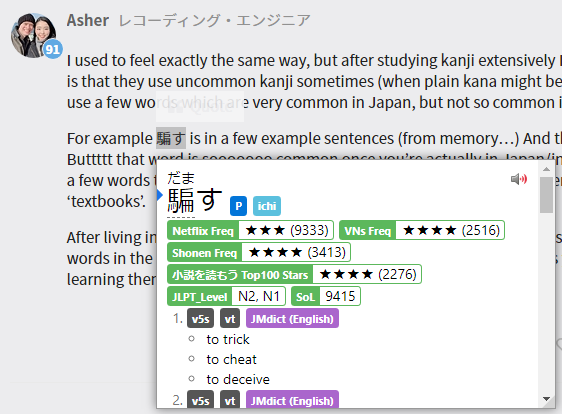I don’t really think Bunpro can win this game… to make universally OKish sentences.
For one, we all have different vocabulary and we all probably started to use Bunpro at slightly different stages in our Japanese learning journey. We all probably enjoy different things in Japanese too…
Initially when I started to study I basically used りんご (apple) in nearly every new grammar sentence that I could and that was not fun  …
…
If similar grammar points had similar vocab it would be really confusing (towards N2/N1)… I really appreciate the different sentences and vocab used on Bunpro.
We all probably study Japanese differently and our study pace too… Eg My grammar has always been way above my kanji / vocabulary knowledge.
Like I said in the post above… I do agree that Bunpro’s sentences can be somewhat frustrating from time to time hehe… Towards N2/N1, self-study, reading and being exposed to different media become really important  … which I guess explains the different vocabulary used on Bunpro too.
… which I guess explains the different vocabulary used on Bunpro too.
Thankfully, the website has evolved and changed a lot for the better and it will continue to evolve and give us ways to mitigate the “frustrations”  … Everything is translated, All grammar points have extra reading section for more exposure, we can also add our own sentences to the grammar points too.
… Everything is translated, All grammar points have extra reading section for more exposure, we can also add our own sentences to the grammar points too.



 Personally, I just learned every vocab in kanji from the beginning so I didn’t even know this was a rare kanji when I learned this word.
Personally, I just learned every vocab in kanji from the beginning so I didn’t even know this was a rare kanji when I learned this word. 
 …
…